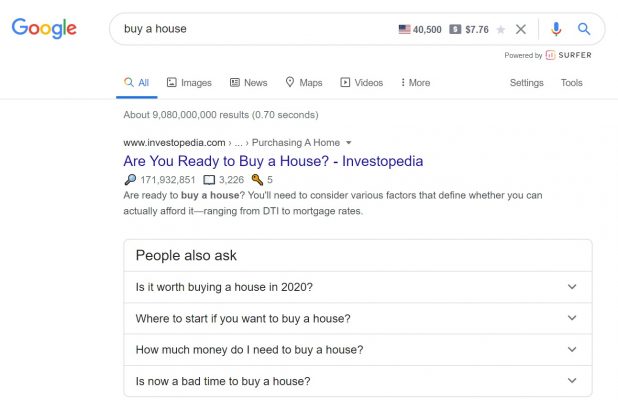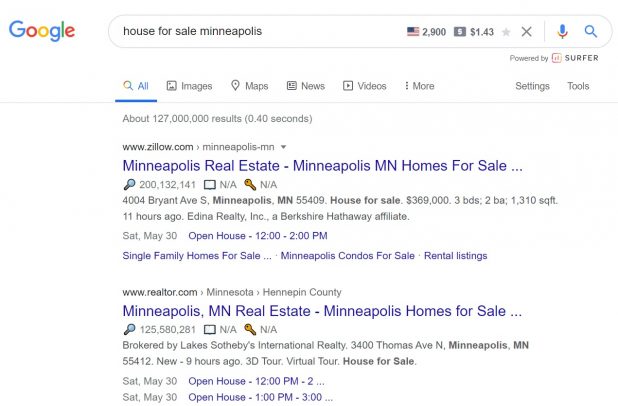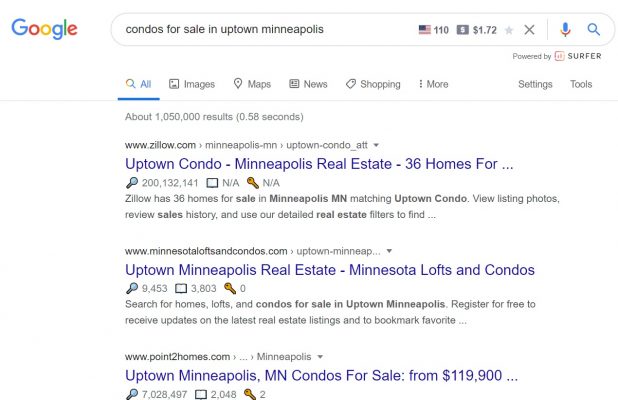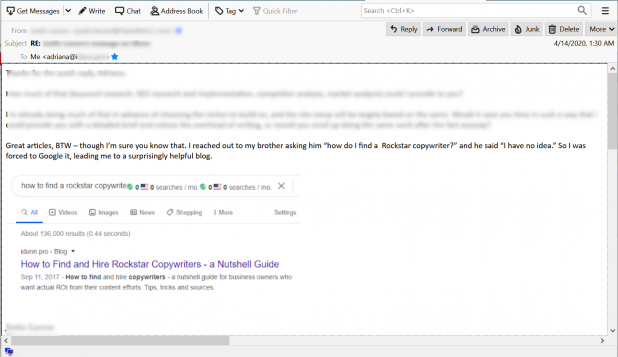This is the question I ask my SEO writing agency’s clients most often.
In the ‘olden’ days, SEO was about traffic. To some extent, it still is.
But modern SEO is about tangible results. Tangible results mean sales. Cash. Money that pays the bills.
Traffic is a bit of a vanity metric. It’s nice to see people are interested in your website. 1,000,000 hits is A LOT! 10,000 is also not a bad score at all.
But at the end of the day what matters is how many of those zeroes also appear in your bank account as a result of SEO.
None?
Then there’s something wrong with your strategy.
Most marketers and business owners assume that traffic means sales. Some of the people who visit your website will buy something eventually, right?
Not necessarily.
It depends on what you write and on how you write. But more on that later.
For now, let’s take a quick look at why the keywords you choose matter so much to your bottom line.
Long-Tail Keywords vs Short Keywords – Why Choose the Former (Most of the Time)?
In the keyword research phase, most marketers think they’ve hit the Holy Grail when they find a short keyword that’s also seemingly easy to rank for – although that rarely happens. Single- or two-word phrases are usually incredibly hard to rank for.
Here’s why:
‘Buy a house’ has a 40,500 search volume. Quite a lot! And there are 9 Billion (with a B!) results for it. Ranking for this keyword is next to impossible.
More importantly, did you notice the article ranking at the top? It’s an article about buying a house from a huge website, Investopedia.
Now let’s refine our search a bit:
The longer keyword has a lower search volume: only 2,900 people are expected to look for this term in a month. The results are fewer, too: only 127 Million.
Something else is more interesting, though: the results are clearly different. Zillow and Realtor.com are both platforms where you can find houses for sale. Also, there’s no answer box.
Why the sudden change in type of result?
Because the second, long-form keyword shows a different kind of intent. In the first case, the user is probably not ready to buy a house, as the first result suggests.
In the second case, they know what they want. They are ready to buy. So they receive results that match their intentions.
Say you are a real estate agent. Which keyword would bring you more potential clients? Obviously, the second one.
But we can go even more in-depth:
NOW we’ve got a user who really knows what they want. They know what type of home they are looking for and precisely where they want it. This is as intent-centered as it gets.
We have three interesting things in the screenshot above:
- An even lower search volume. Just 110 people are expected to look for this. BUT: even a 1% conversion rate would still give you at least one client here. And, mind you, this is a client who’s ready to buy.
- Fewer results (a bit over a million), which leads us to:
- Much easier to rank for. In fact, if you take a look at the results on the first page, you’ll see some smaller players next to the real estate giant Zillow.
It’s something I’ve said over and over again: forget about search volume. You can literally get a better bang for your buck with low-volume, obscure keywords.
Some of our best clients found us this way:
‘How to find a rockstar copywriter’ is a keyword with ZERO search volume. Don’t be fooled by that. That’s an approximation. As you can see, someone DID use it. They found my agency and they hired us to write SEO content for them because they liked this approach.
Why does this work?
Because long-tail keywords make it easier for you to map user intent to your business goals. They make it easier to create different content for different stages of the buying cycle: top of the funnel, middle of the funnel and bottom of the funnel.
So, who should use long-tail keywords focused on user-intent?
- New websites – with no domain authority and no backlinks, you have to start small in order to compete with the established companies in your industry.
- Companies who want sales rather than brand awareness
- Companies in competitive industries
Who should aim for short, high-volume keywords?
- Established companies/websites with A LOT of history and backlinks. Think Microsoft, The New York Times, Moz
- Experienced bloggers who get their revenue from AdSense or similar platforms.
Wrapping things up
When you match user intent (and needs!) to your business goals, you’re in the sweet spot for attaining those goals. Find this intersection and you’ll know what to write about and how to write – what kind of tone of voice your buyer persona prefers.
If you’re struggling with any of the above, my team and I can help! Check out our SEO writing and copywriting services and let’s talk!









